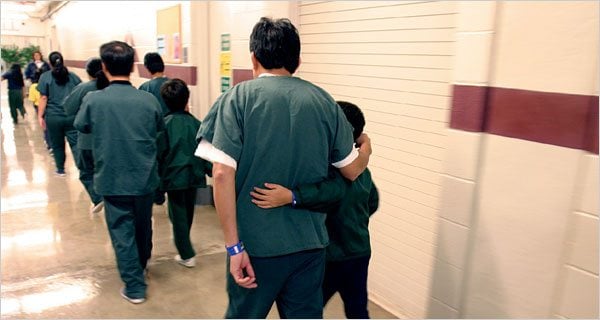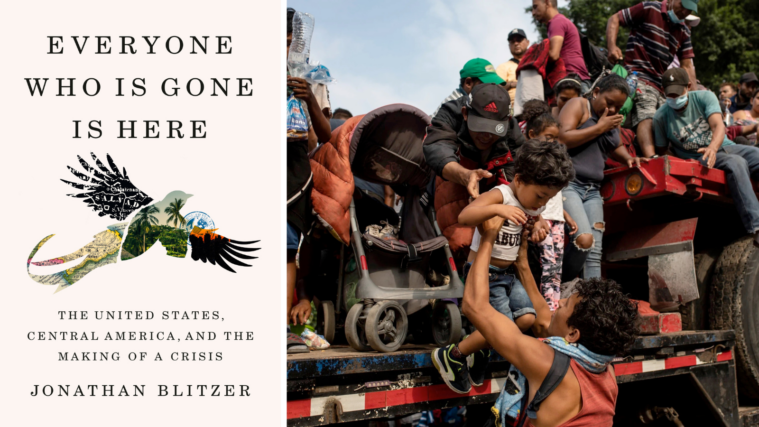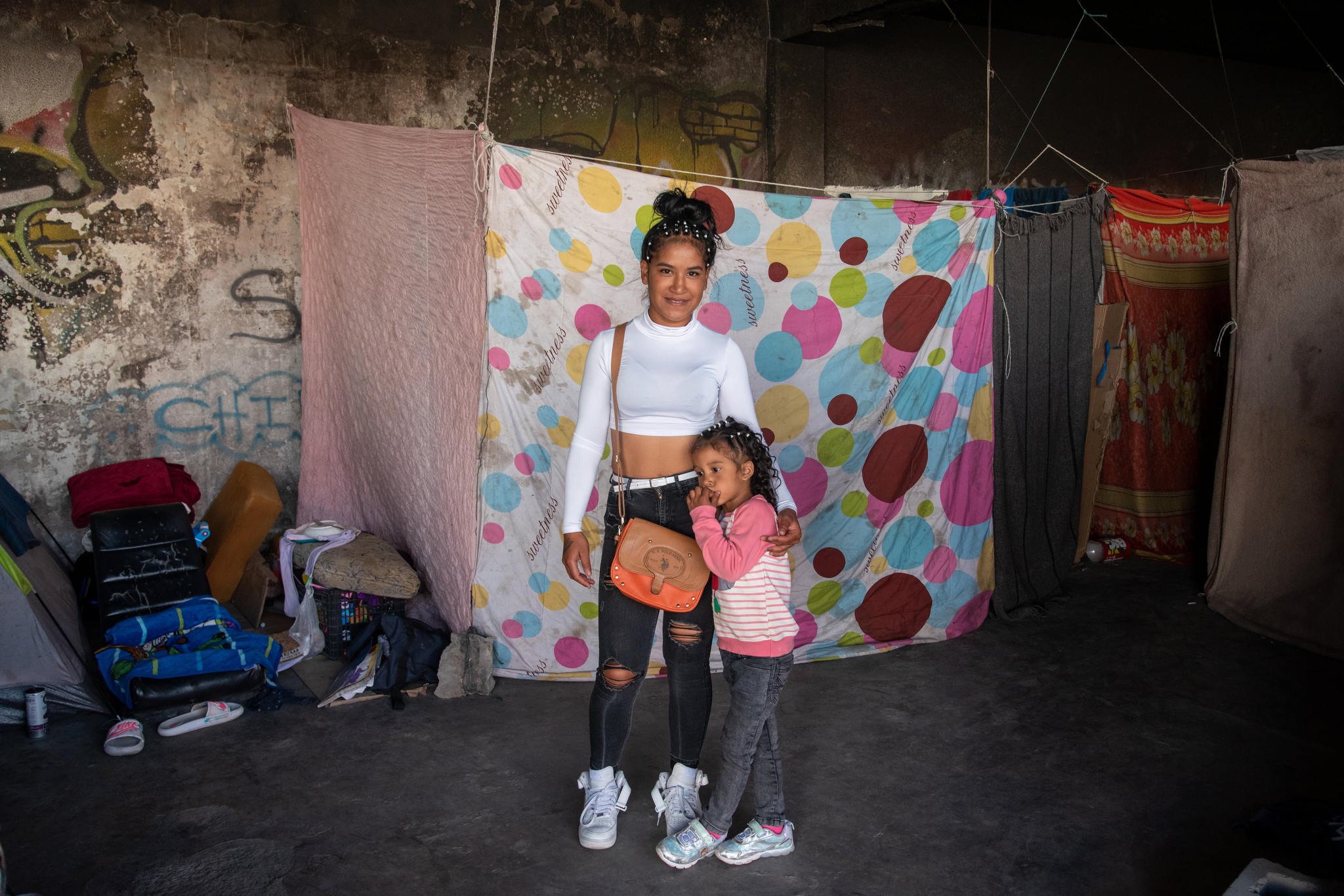
Costly Bonds Leave Women Refugees Languishing in Detention

A version of this story ran in the February 2015 issue.
Above: Families in the hall at the notorious T. Don Hutto family detention center
Ever since thousands of Central Americans sought asylum in Texas last summer, the White House has been trying to stop other families from doing the same. One of its most controversial tactics is to lock up asylum-seeking women and children in detention facilities and charge such high immigration bonds that they can’t get out. Eventually, the mothers become desperate, give up their asylum claims and agree to be deported.
The United States has recognized valid asylum claims under international conventions and treaties since World War II. But the government’s treatment of the families currently detained in Texas defies basic U.S. asylum law, says Jonathan Ryan, executive director of the Refugee and Immigrant Center for Education and Legal Services, or RAICES, a San Antonio nonprofit assisting women and children in detention facilities in Karnes City and Dilley in South Texas.
“This is about politics, not about the law,” Ryan says. “I’ve never seen them apply such high bonds. It’s not only unusual, it’s extraordinary.”
“Single men who were taken into detention are given bonds of $1,500 but the women are being given bonds as high as $5,000 up to $15,000.”
Faced with impossibly high bonds, most women have no choice but to remain locked up with their children for several months, waiting for their court date with the asylum judge. Faced with this grim scenario many accept deportation instead.
RAICES is trying to change that. In October, it started a fund to raise money from individuals and from religious and other groups to help women and children get out of detention on bond. So far, the organization has collected $82,000 and helped 21 families. Bond money goes to the U.S. Treasury, where it collects interest. If the family doesn’t report to immigration court, the money is forfeited, but otherwise, it returns to the person or group that donated it once the case resolves.
The important thing, Ryan says, is to give the families a chance to start their lives over without the fear of persecution or death that caused them to flee their countries. “These women and children are being treated as if they are a national security threat,” he says. “You have these private companies that are making a profit from keeping women and children in a box against their will until they can pay enough money to get out.”
The two detention facilities in South Texas are capable of holding up to 3,000 women and children. Ryan says RAICES has nearly depleted its bond funds and is trying to raise additional money to free more families. “You want to cry tears of joy every time a woman and her child is released,” he says. “What we are doing is just a drop in a bucket. There’s still so much more to be done.”


